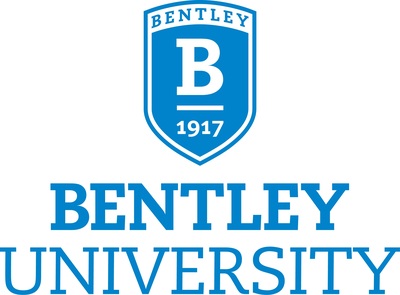Allyship is Key to Creating Inclusive Workplaces
Allyship is Key to Creating Inclusive Workplaces
New report highlights best practices for successful allyship programs
PR Newswire
WALTHAM, Mass., May 18, 2021
WALTHAM, Mass., May 18, 2021 /PRNewswire/ -- Public coverage of systemic racism has challenged businesses to promote cultures of inclusion, often utilizing allies who serve as collaborators to support historically underrepresented individuals and communities. But along with that comes a need to understand the complex issues required to become an advocate for change, according to a report from Bentley University's Center for Women and Business (CWB). Elevating Allyship in the Workplace highlights relevant research and interviews with diversity, equity and inclusion thought leaders, employees and executives to present best practices for creating an inclusive workplace.
"The report establishes the need for allyship through data that highlights the lived experiences of workers with unique identities, including race, ethnicity, gender, disability, age, and LGBTQ+ status," CWB Executive Director Trish Foster says. "It delves into complex issues that are central to effective allyship including white privilege, systemic racism, performative allyship, the role of fear and Intersectionality."
Foster notes that the report specifically explores allyship approaches for those who are Black and Asian American while also including strategies for those who want to be white allies for racial justice and male allies for gender equity. It also explores LGBTQ+ allyship and advocacy for disability, including mental health.
The benefits of an inclusive work culture
Discouraging data from LeanIn.Org indicates that, "despite an overwhelming majority of white employees seeing themselves as allies, less than half of Black women and only slightly more than half of Latinas feel they have strong allies at work."
Deloitte research suggests that "allies might be the missing link" in creating inclusive organizations. Employees in organizations with cultures of inclusion and allyship report feeling greater happiness and are more likely to go above and beyond for their employers: They are 50 percent less likely to leave; 56 percent more likely to work to improve their performance; 75 percent less likely to take a sick day; and up to 167 percent more likely to recommend their organizations as great places to work.
Allyship is necessary for psychological safety. Research from Deloitte concludes that, "teams where workers feel psychologically safe bringing their views to the table, and where their relationships with other team members are strong enough to allow them to do so in an assertive yet constructive way, will be well positioned to engage in productive friction—the ability to draw out conflict and learn from disagreements to generate new insights."
Barriers to effective allyship
The CWB report cautions that a significant hurdle to progress is performative allyship, which occurs when individuals or organizations share information about inequities but don't take authentic action to make change. Examples include posting social media pieces on racial justice without further action to press for change or making statements of anger about current examples of social injustice without following up to learn more about the underlying historic, systemic issues.
A barrier to employees becoming allies is personal discomfort. But the good news is that there are ways to lean into that discomfort:
- Learn more about people with different identities such as gender, LGBTQ+ status, race and religion without putting the onus on underrepresented peers and friends.
- Think about intersectionality and how it impacts others' lives.
- Read, watch documentaries, and listen to podcasts to learn about people's unique identities.
- Work through potentially defeating concerns and fears with other would-be allies.
Best practices to create an organizational allyship program
"If you are developing an organizational program, leverage proven best practices and view the journey as an iterative process, allowing for trial and error along with transparency about mistakes," Foster says. "Take a flexible approach and recognize that even the most sophisticated organizations face challenges when it comes to allyship and inclusion."
Best practices to elevate workplace allyship include:
- Embed an organizational culture of safety; the tone from the top is critical.
- Adopt the practice of non-judgmental dialogue that allows employees voices to be heard.
- Admit mistakes, apologize, and work to correct them as you move forward.
- Learn how to distinguish between intent and impact and be willing to discuss it.
- Celebrate the success of allies and underrepresented individuals.
- Make a public commitment to allyship as an organization.
- Prioritize employees before profits and ensure that branding, client relationships and vendor agreements emphasize inclusion.
- Ensure accountability on teams and among leadership. One example is establishing a diverse personal advisory board that gives leaders regular feedback.
- Utilize an assessment tool to measure the effectiveness of your organizational and individual allyship initiatives.
- Recognize the challenges of a virtual environment, which requires more intentional allyship and sensitivity to those struggling or feeling excluded in a remote setting. Virtual drop-in times, for example, could give employees a chance to connect more spontaneously with managers and each other.
Foster says that while the CWB report highlights numerous allyship strategies and approaches to create an inclusive workplace, individual actions are key to success. "All allies should work to amplify others' voices and engage in brave dialogue. Try to move beyond performative allyship; true allies use their power, skills, knowledge and relationships to advocate for change. Doing so requires pushing back against long-standing practices and attitudes. It is not easy but change seldom is."
Bentley University is more than just one of the nation's top business schools. It is a lifelong-learning community that creates successful leaders who make business a force for positive change. With a combination of business and the arts and sciences and a flexible, personalized approach to education, Bentley provides students with critical thinking and practical skills that prepare them to lead successful, rewarding careers. Founded in 1917, the university enrolls 4,200 undergraduate and 1,000 graduate and PhD students and is set on 163 acres in Waltham, Massachusetts, 10 miles west of Boston. For more information, visit bentley.edu.
![]() View original content to download multimedia:http://www.prnewswire.com/news-releases/allyship-is-key-to-creating-inclusive-workplaces-301294172.html
View original content to download multimedia:http://www.prnewswire.com/news-releases/allyship-is-key-to-creating-inclusive-workplaces-301294172.html
SOURCE Bentley University; Gloria Cordes Larson Center for Women and Business













